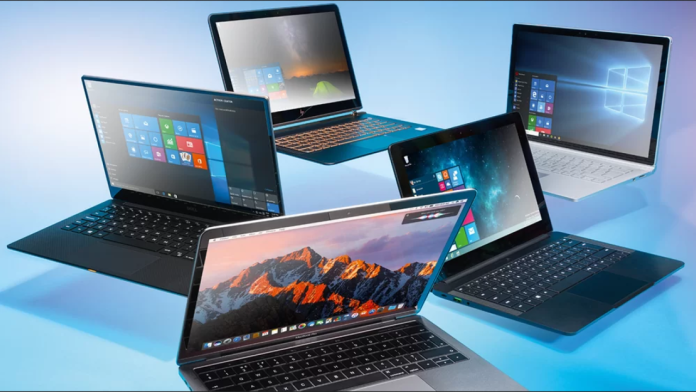The government of President Bola Ahmed Tinubu has been urged to urgently follow in the footsteps of the Indian government, which recently enforced restrictions on the importation of laptops, tablets, personal computers, and servers.
This is hailed as a move towards product nationalism, promoting domestic products to stimulate local productivity, generate employment, foster expertise, and curb capital flight.
Some Nigerian technocrats and ICT professionals have endorsed India’s policy, advocating for a ban on computer and hardware imports to invigorate local companies struggling to compete.
A Fellow of the Nigeria Computer Society (NCS) and former President of the Institute of Software Practitioners of Nigeria (ISPON), Chris Uwaje suggested that President Tinubu adopt India’s policy and compel foreign computer manufacturers to establish local production facilities in collaboration with domestic companies.
To encourage such partnerships, Uwaje recommended granting pioneer status incentives to new manufacturers for a minimum of five to seven years.
Another ICT expert, Dotun Ali-Balogun, calls for all government ICT operations to exclusively utilize locally assembled computers, a sentiment shared by other digital professionals like Michael Ikeogwu and Ayodele Ogundele.
They believe that the time is ripe for Nigeria to implement a Buy-Nigeria policy in ICT to discourage capital flight and boost local productivity.
Ali-Balogun praised India’s new policy as a blueprint for Nigeria, emphasizing that it should ban the import of computer hardware, particularly items that are already assembled domestically.
He argued that such a policy will enhance local production efficiency, create jobs across the value chain, and support marketing, services, and logistics.
“The Federal Government should adopt a policy that bans importation of computer hardware especially those that are already being assembled in Nigeria. This will not only help boost local production, it will encourage efficiency in local production, create direct and indirect jobs, through the entire value chain, including marketers, support services and logistics,” he stressed.
Nigeria has a couple of indigenous computer hardware assembling companies, with some of them having technically proven products in terms of standards.
Available data lists local computer and allied products makers to include RLG, Beta, Data House Technologies, Zinox, Acti-Tech Limited, among others. While it can be argued that most of them are struggling and may lack capacity to meet local demand, the same cannot be said of Zinox which has since its roll out in 2001 as Nigeria’s first truly globally-certified computer brand gone ahead to execute mega ICT projects.
Data from the International Trade Centre showed that $1.09billion was spent on software acquisition and importation of computer services into Nigeria in five years from 2016 to 2020.
The breakdown further showed that software and computer services worth $123.89m were imported in 2016, the figure jumped to $216.57m in 2017, $257.55m in 2018 and dipped to $159.28m in 2019, before rocketing to $336.43m in 2020.
As Nigeria’s ICT sector demonstrates its capacity in both software and hardware engineering, the interest of global tech giants or multinationals like Microsoft, Oracle, Google, and IBM in recruiting young Nigerian talent is growing.
Also, calls for a more robust domestic ICT industry echo the drive to build faith in Nigeria, as President Tinubu envisions.


